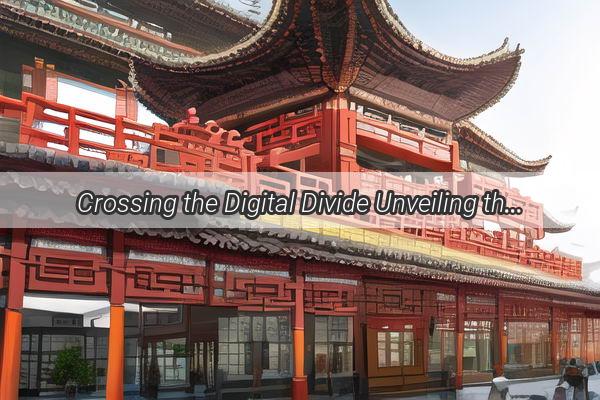Crossing the Digital Divide Unveiling the Intriguing Differences Between the Internet in the US and China
In today's interconnected world, the internet has become an integral part of our lives, shaping the way we communicate, work, and entertain ourselves. However, when it comes to the internet in the United States and China, there are striking differences that set them apart. This article delves into the fascinating distinctions between these two internet landscapes, exploring the unique features and challenges that each country faces.
One of the most prominent differences between the internet in the U.S. and China is the level of government control. In China, the government has implemented a stringent system known as the Great Firewall, which filters and blocks access to foreign websites, social media platforms, and search engines that it deems harmful or politically sensitive. This has led to a significantly different online environment, where domestic platforms like WeChat and Baidu dominate the market. In contrast, the U.S. boasts a more open and unrestricted internet, where users can freely access a wide range of content without government interference.
Another key distinction lies in the language used on the internet. While English is the primary language in the U.S., Chinese is the dominant language in China. This linguistic divide has led to the development of unique platforms and content tailored to each language. For instance, Chinese social media platforms like Weibo and Sina Weibo have gained immense popularity among Chinese internet users, while platforms like Twitter and Facebook are more prevalent in the U.S. This linguistic diversity highlights the importance of language in shaping online culture and user behavior.
When it comes to social media, the U.S. and China present contrasting approaches. In the U.S., social media platforms like Facebook, Twitter, and Instagram have become hubs for political discourse, activism, and social movements. These platforms have played a crucial role in shaping public opinion and bringing attention to various social issues. Conversely, in China, social media platforms like WeChat and Sina Weibo are primarily used for entertainment, communication, and e-commerce. The Chinese government's strict control over online content has limited the use of social media for political activism, leading to a more subdued online environment.

The online shopping landscape also differs significantly between the two countries. In the U.S., e-commerce giants like Amazon and eBay have revolutionized the retail industry, offering consumers a vast array of products at competitive prices. In China, platforms like Alibaba and JD.com have taken the lead, providing a seamless shopping experience that combines online and offline services. These platforms have not only transformed the way people shop but have also become integral to the Chinese economy, contributing to the country's rapid economic growth.
Moreover, the approach to cybersecurity varies greatly between the U.S. and China. The U.S. has a robust cybersecurity infrastructure, with stringent regulations and laws designed to protect individuals and organizations from cyber threats. China, on the other hand, has a more relaxed approach to cybersecurity, often prioritizing economic growth over data protection. This has led to concerns about data privacy and security, as Chinese companies and government agencies have been accused of collecting and using sensitive information without consent.
In conclusion, the internet in the U.S. and China presents a fascinating case study of how different cultural, political, and economic factors shape the online landscape. While the U.S. boasts an open and unrestricted internet, China's Great Firewall has created a unique online environment characterized by government control and linguistic diversity. Understanding these differences can provide valuable insights into the evolving digital world and its impact on societies around the globe.









